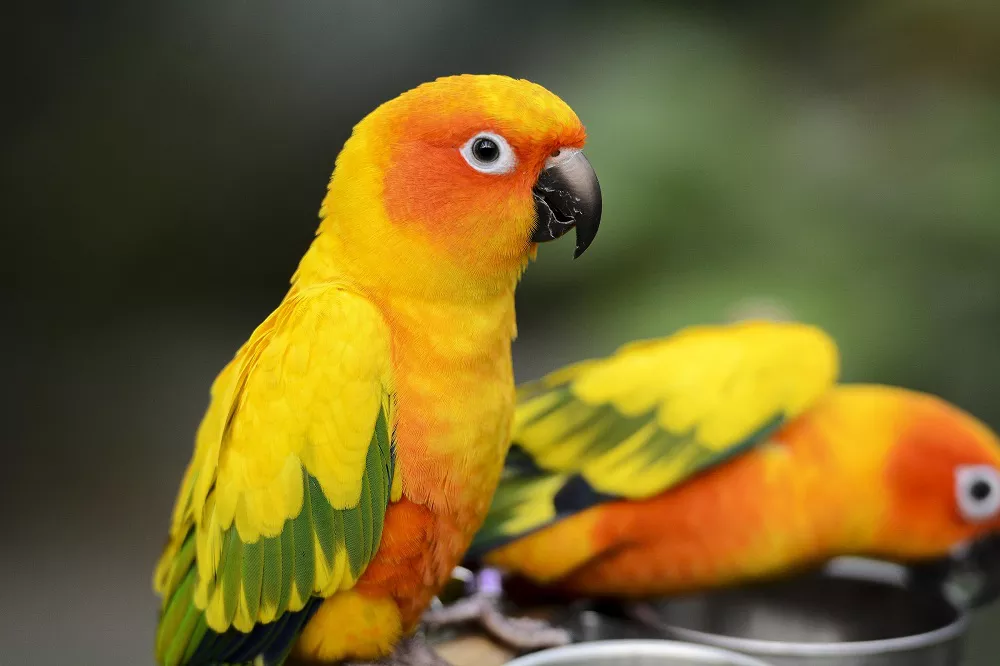Conures are small to medium-sized parrots that are popular as pets due to their charming personalities and colorful plumage. As with all pets, it’s essential to provide them with a balanced and nutritious diet that meets their nutritional requirements. In this article, we’ll discuss what conures eat, including their natural diet, commercial diets, and recommended feeding guidelines.
Natural Diet of Conures
In the wild, conures primarily feed on fruits, nuts, seeds, and vegetation. They also consume insects, worms, and larvae. Their diet can vary depending on their geographic location and the availability of food in their habitat. For instance, the sun conure, which is native to South America, feeds on a variety of fruits, including figs, mangos, papayas, and passionfruit. Meanwhile, the green-cheeked conure, which is native to the Amazon basin, feeds on nuts, seeds, and fruits such as guava and cactus fruits.
Commercial Diets for Conures
Commercial diets are an excellent option for pet conures since they provide a balanced and complete nutrition profile. There are two types of commercial diets available for conures:
- Pellets:
Pelleted diets are formulated to provide all the essential nutrients that conures need. They come in different sizes, shapes, and flavors. Pellets are made by grinding and mixing a combination of grains, seeds, vegetables, and fruits, and then shaping them into small pellets. The pellets’ texture and size encourage conures to chew, which helps maintain their beak’s health.
- Seed mixes:
Seed mixes contain a combination of seeds, grains, and nuts. While seed mixes are a popular choice for pet birds, they are not nutritionally complete and can lead to health problems if they make up the majority of a conure’s diet. Therefore, it’s essential to supplement seed mixes with fresh fruits, vegetables, and pellets. If you decide to feed your conure a seed mix, make sure to choose a high-quality brand that contains a variety of seeds, grains, and nuts.
Feeding Guidelines for Conures
Feeding a conure is relatively easy, but it’s crucial to follow some guidelines to ensure they receive the proper nutrition:
- Fresh food and water:
Provide your conure with fresh food and water daily. Remove any uneaten food after a few hours to prevent bacterial growth.
- Fruits and vegetables:
Offer your conure a variety of fresh fruits and vegetables daily. Some fruits and vegetables that conures enjoy include apples, bananas, berries, carrots, kale, spinach, and sweet potatoes.
- Pellets or seed mix:
Offer your conure a small amount of pellets or seed mix daily. Pellets should make up the majority of their diet, while seed mixes should only be a supplement.
- Treats:
Treats are an excellent way to bond with your conure, but they should only make up 10% of their diet. Offer them as a reward for good behavior or training.
- Calcium:
Conures require calcium for healthy bones and egg-laying. Provide a cuttlebone or mineral block for them to chew on.
In conclusion, conures are charming and entertaining pets that require a balanced and nutritious diet to stay healthy. Their natural diet consists of fruits, nuts, seeds, and vegetation, but commercial diets such as pellets and seed mixes are also available. Follow the feeding guidelines to ensure your conure receives the proper nutrition and maintain their overall health and well-being.
Related topics:


 Facebook
Facebook  Instagram
Instagram  Youtube
Youtube 